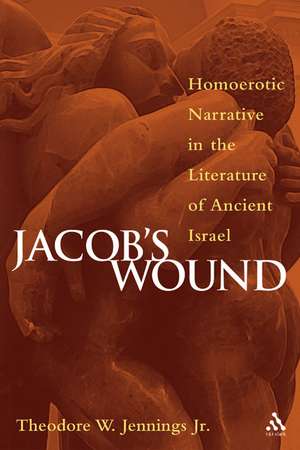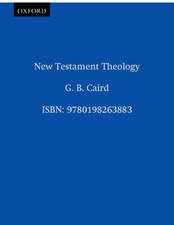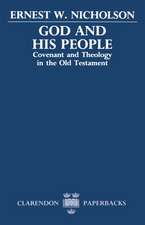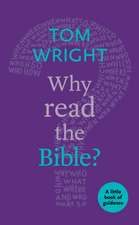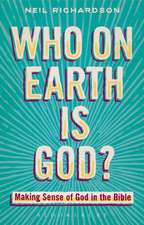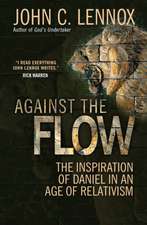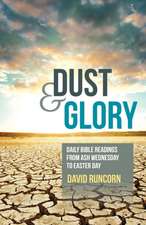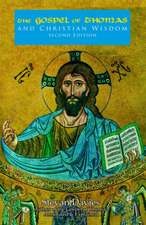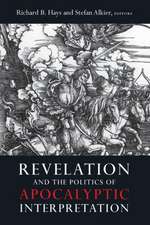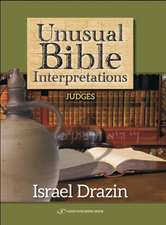Jacob's Wound: Homoerotic Narrative in the Literature of Ancient Israel
Autor Theodore W. Jennings Jr.en Limba Engleză Paperback – 31 iul 2005
Preț: 227.16 lei
Nou
Puncte Express: 341
Preț estimativ în valută:
43.47€ • 47.36$ • 36.63£
43.47€ • 47.36$ • 36.63£
Carte tipărită la comandă
Livrare economică 23 aprilie-07 mai
Preluare comenzi: 021 569.72.76
Specificații
ISBN-13: 9780826417121
ISBN-10: 0826417124
Pagini: 306
Dimensiuni: 160 x 228 x 19 mm
Greutate: 0.49 kg
Editura: Bloomsbury Publishing
Colecția Continuum
Locul publicării:New York, United States
ISBN-10: 0826417124
Pagini: 306
Dimensiuni: 160 x 228 x 19 mm
Greutate: 0.49 kg
Editura: Bloomsbury Publishing
Colecția Continuum
Locul publicării:New York, United States
Recenzii
"The book is written in colloquial language, and, indeed, I found the author's use of language blunt, clever, entertaining, and fresh, which is not often the case in scholarly writings....the book's structure is well organized.... I am sure it will be popular." - RBL, July 2006
mention- The Catholic Biblical Quarterly/ 68, 2006
"There is much in Jennings' book that I admire. He deftly sifts through existing scholarship to recover the terms and forms of ancient Israel's worship of a 'hypermasculine divinity' whose ravishing of his male followers provided a model both for the warrior-leader's sexual relations with his male attendant and for the healer's cure of the sick through the infusion of phallic energy."- Raymond-Jean Frontain, The Gay and Lesbian Review, Jan-Feb 2007
"Jacob's Wound remains one of the most stimulating and provocative books on the Hebrew Bible to appear in recent years. I will use it next time I teach on the Bible and homosexuality, and the class discussion it will provoke will be impassioned and productive." - Stephen D. Moore, The Theological School, Drew University, USA; The Journal of the History of Sexuality, September 2008
"Over against the hegemony of the religious right and its ferocious homophobia, Jacob's Wound shows that the Bible is a profoundly positive, homoerotic text. Through a careful reading of texts, Ted Jennings reclaims the Bible from those who would use it to oppress others. This is a liberating reading." -Roland Boer, Senior Logan Research Fellow at the Centre for Studies in Religion and Theology at Monash University, author of Marxist Criticism of the Bible, and managing editor of The Bible and Critical Theory
"Prophetic voices have tended to give up on the Bible, and in so doing have handed it over to reactionary agendas. Jennings refuses to allow the Bible to be dominated in this way. Drawing on a vast array of biblical and theological resources, Jennings offers us 'other' readings of the Bible, both by reading unfamiliar texts and by reading familiar texts in unfamiliar ways." -Dr. Gerald West, Senior Professor in Hebrew Bible and Director of the Ujamaa Centre for Biblical and Theological Community Development and Research, in the School of Religion and Theology at the University of KwaZulu-Natal, South Africa
"While not focusing on women's experience in the Hebrew Bible, this volume makes a significant contribution to understanding the homoerotic dimensions of the text." -WATERwheel, 2005
mention- The Catholic Biblical Quarterly/ 68, 2006
"There is much in Jennings' book that I admire. He deftly sifts through existing scholarship to recover the terms and forms of ancient Israel's worship of a 'hypermasculine divinity' whose ravishing of his male followers provided a model both for the warrior-leader's sexual relations with his male attendant and for the healer's cure of the sick through the infusion of phallic energy."- Raymond-Jean Frontain, The Gay and Lesbian Review, Jan-Feb 2007
"Jacob's Wound remains one of the most stimulating and provocative books on the Hebrew Bible to appear in recent years. I will use it next time I teach on the Bible and homosexuality, and the class discussion it will provoke will be impassioned and productive." - Stephen D. Moore, The Theological School, Drew University, USA; The Journal of the History of Sexuality, September 2008
"Over against the hegemony of the religious right and its ferocious homophobia, Jacob's Wound shows that the Bible is a profoundly positive, homoerotic text. Through a careful reading of texts, Ted Jennings reclaims the Bible from those who would use it to oppress others. This is a liberating reading." -Roland Boer, Senior Logan Research Fellow at the Centre for Studies in Religion and Theology at Monash University, author of Marxist Criticism of the Bible, and managing editor of The Bible and Critical Theory
"Prophetic voices have tended to give up on the Bible, and in so doing have handed it over to reactionary agendas. Jennings refuses to allow the Bible to be dominated in this way. Drawing on a vast array of biblical and theological resources, Jennings offers us 'other' readings of the Bible, both by reading unfamiliar texts and by reading familiar texts in unfamiliar ways." -Dr. Gerald West, Senior Professor in Hebrew Bible and Director of the Ujamaa Centre for Biblical and Theological Community Development and Research, in the School of Religion and Theology at the University of KwaZulu-Natal, South Africa
"While not focusing on women's experience in the Hebrew Bible, this volume makes a significant contribution to understanding the homoerotic dimensions of the text." -WATERwheel, 2005
